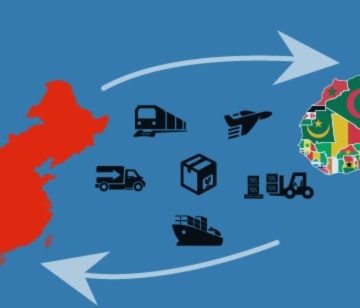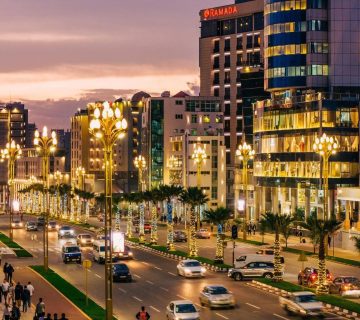Ethiopia’s declaration of the state of emergency on November 2, 2021, in response to Tigray People’s Liberation Front’s (TPLF’s) continued insurrection, and advance towards Addis Ababa – Ethiopia’s capital – significantly escalates the Ethiopian National Defense Force (ENDF)-TPLF conflict. The war, which has drawn in Ethiopia government’s and TPLF’s allies and proxies, and invited US and European Union (EU) sanctions against the warring parties – over crimes against humanity – has left thousands dead or injured and/or displaced especially in Tigray, Afar and Amhara States (regions neighboring Tigray), and across the border, in Sudan. It has also compromised civilians’ access to food and other basic supplies; TPLF has cited starvation of civilians as a motive for its advance towards Addis. Hunger has become a ‘pawn’ in this war. Attending to the food and nutrition needs of the more than five million civilians caught up in the war as different actors pursue their political interests will, in the long run, prevent chronic political instability whose potential repercussions on the country and region remain unclear, but could be severe.
With limited access to Tigray State via Afar State through the Semera-Abala humanitarian corridor, the humanitarian situation in Tigray State is currently characterized by lack of food and other basic supplies, according to UN’s humanitarian coordination agency, UN OCHA. Arguments ranging from an existing government blockade, ethnic cleansing, and weapons smuggling to politics, and security have been offered for this shortage. Critics accuse Abiy of violating UN Resolution 2417 that identifies “deliberate starvation of civilians as a method of warfare,” and – after he suspended four top UN officials from Ethiopia for ‘meddling’ in Ethiopia’s internal affairs – for being indifferent to civilians’ needs. Reacting to publicized allegations of Ethiopian government’s restriction on the delivery of food and medicine to Tigray State, for example, Ethiopia’s government spokesperson, Belline Seyoum, defended the measures, ‘’Security” is a “priority that cannot be compromised.’’
The Security-Food Question
Prioritizing security over humanitarian aid in wartime may be expected, and lends several readings. First, it assures citizens, including the ones caught up in the war, that their government takes their protection seriously. It also communicates the government’s willingness to take on its aggressors in the pursuit of interests. Another reading is that civilians, a key component of a state’s existence, are second – not equal – to state sovereignty. That their access to humanitarian aid is secondary to the government’s political and security priorities. This kind of situation strains government-civilian relations, and births grievances.
While the extent of such grievances is yet unknown, aggrieved non-combatants in precarious situations such as those witnessed in this war are potential recruits for the warring parties and their allies. Their exploitation for political, economic, or military gains to protract the war, or motivate future conflict episodes (outbreaks) cannot be ruled out. To prevent the recruitment and radicalization of ‘at risk’ individuals into political extremism, Abiy should address the drivers of such extremism that his actions or inactions may have inadvertently created. He could, for instance, recalibrate and moderate problematic aspects of Ethiopia’s political reform agenda such as the agenda’s pace. Allowing for more citizen participation in the reform agenda, for example, will slow the reform pace to a more sustainable level, and reduce the perception of political alienation.
Meeting Humanitarian Needs
With the war and humanitarian crisis in Tigray State splitting public opinion, derailing Ethiopia’s development agenda, and staining of his leadership credentials on his plate, Ethiopia’s PM’s actions or inactions vis-à-vis any of these issues appear doomed. Still, Abiy has little choice but to navigate this complex catch-22 situation carefully, tactfully, and decisively – to keep the 100 million-plus ethnic federal state together, and the conflict-prone Horn of Africa region stable. An arduous task. Actively engaging the war-afflicted civilians to address hunger and desperation through neutral actors should be one of Abiy’s top priorities. These neutral actors, selected by a mutually negotiated government-TPLF agreement from a pool of several such actors, could deliver humanitarian aid in Tigray, as well as areas in Afar and Amhara States into which the war has ‘spilled.’ Their involvement would be by random assignment, and rotated to maintain the actors’ neutrality and ensure the prioritization of civilians’ needs.
These actors could airdrop humanitarian supplies as has happened in some humanitarian crises. In 2006, for example, UN refugee agency, UNHCR, delivered humanitarian aid in this manner to refugees at the Dadaab refugee camp after flooding rendered local roads inaccessible. However, given the sensitivities of this war around issues such as arms smuggling, the safety and security of airdropped supplies could be enhanced using a robust technological surveillance system. The neutral actors could activate the airdrops using a tailormade mobile application that will also generate and deliver post-delivery notifications to the warring parties. To prevent post-delivery targeting of civilians by armed groups, theft, and/or aid misuse, some of these actors will be positioned in and around areas housing the civilians. This way, food and/or its delivery or otherwise will cease to be a weapon of this war. Further, doing civilians no harm while meeting civilians’ increasing humanitarian needs promptly will help to de-escalate this war, and avert the humanitarian catastrophe that is impending in the Horn of Africa region.
Roselyne Omondi is the Associate Director, Research, while Asia M. Yusuf is a Researcher, both at the HORN Institute.
The contents of this article are copyright of © The HORN Institute 2022. All rights reserved. Any redistribution or reproduction of part or all of the contents in any form and for whatever reason is prohibited. You may use the content of this article for personal reasons, but acknowledge the website as the source of the material.



